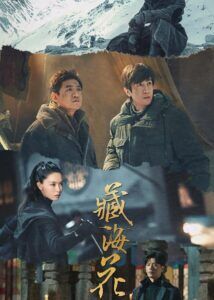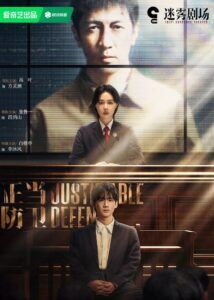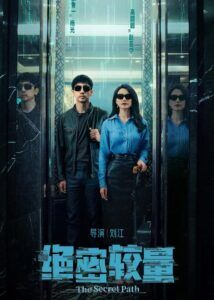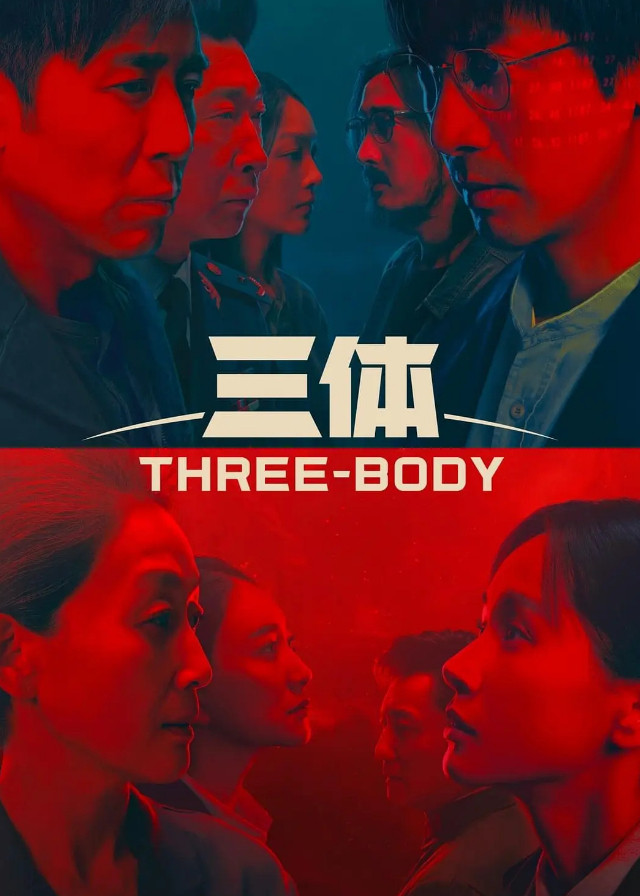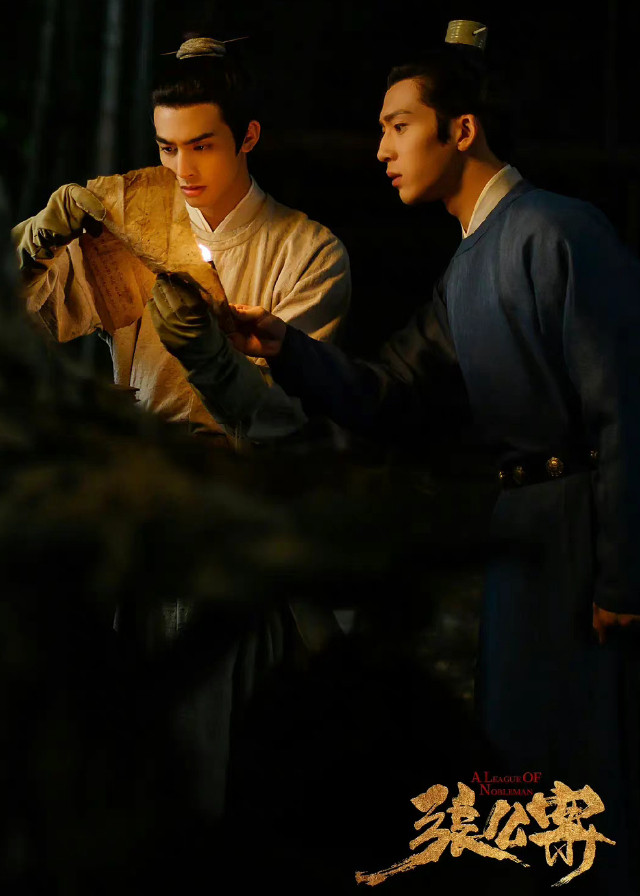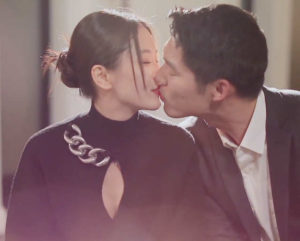Three-Body Episode 19 Recap
> Three-Body Recap
Wang Miao, having left the Red Coast Base, received a call from Shi Qiang, who was waiting for him at the village entrance. Shi Qiang informed him that General Chang Weisi had accessed and shared Red Coast's files, which revealed its purpose was to search for extraterrestrial intelligence. Shi Qiang noted Ye Wenjie's surprising composure, as she opted to stay and reminisce while visiting old friends.
Although locals, including Qi Jianguo, suggested Ye Wenjie had minimal contact with Shen Yufei and that Shen Yufei, an adviser who periodically visited for work, had already left, Shi Qiang found the coincidences suspicious. Despite his skepticism, Shi Qiang admitted there was nothing they could do to investigate or question her without further information. He then decided they should return to research Red Coast.
Wang Miao questioned who Ye Wenjie's "old friends" might be, considering she had lived there for many years. Ye Wenjie's "old friend" was Mike Evans. At the abandoned Red Coast Base, which she described as surprisingly warm despite its cold history, she reflected on its significance as the origin point of everything. Evans, calling her "Commander," hailed her as the spiritual leader and supreme commander of the ETO.
He expressed profound gratitude, attributing his purpose to her act of pushing the button to contact "Lord," a decision he deemed far more significant than any other in human history. Evans revealed that his ship, the "Judgment Day," served as the "Second Red Coast," named in homage to the original. It was established three years prior, utilizing the specific direction and frequency she provided to communicate with Lord.
He reminded Ye Wenjie of their initial ideal: to invite Lord to transform human civilization, curbing its madness and evil to create a harmonious, sinless world. However, Ye Wenjie conceded that "everything has changed," indicating a shift in her perspective. Evans argued she hadn't grasped humanity's true nature, believing her actions stemmed from an enduring love for mankind, influenced by her father's sense of responsibility, leading her to cling to hope despite suffering.
He contended that human evil was indelible, even declaring his own betrayal as her first follower, and asserted that humanity was "absolutely incorrigible." Evans noted her continued efforts to receive messages from Lord, having rebuilt a reception system at the abandoned Red Coast, which he ironically termed the "Third Red Coast." He then questioned if she had changed her reception and transmission methods, or if she had been fabricating Lord's arrival all along.
Ye Wenjie asked if she had the right to fabricate such things. Evans, believing self-destruction was a merciful end for humanity, asked if there had ever been mercy in human civilization. When Ye Wenjie suggested he still had a choice, Evans, viewing all choices as pointless in the vastness of the universe, declared that humanity was already trapped in an un-savable inferno, and she was the one who ignited it.
Ye Wenjie, deeply saddened, lamented that she had started the fire but could no longer control its destructive spread. The Red Coast Base, operational from 1968 to 1987, reportedly detected no abnormal radio waves during its two decades of service, suggesting no extraterrestrial contact. Wang Miao confirmed that Ye Wenjie's description of Red Coast's true intent was largely consistent with the official archives.
When Shi Qiang questioned the extreme secrecy of a project aimed at finding aliens, Wang Miao explained Bill Mathers' "contact as symbol" theory. At Shi Qiang's request, Xu Bingbing simplified this, explaining that contact with an alien civilization was akin to acquiring a powerful martial arts manual; whoever possessed it would become invincible, transforming the world.
Shi Qiang, linking this idea to General Chang Weisi's observation about terrorists becoming pacifists and scientists committing suicide, pondered if these drastic changes were due to alien contact. Wang Miao added that Ye Wenjie herself emphasized the profound impact of extraterrestrial exploration on a researcher's worldview.
Xu Bingbing and her team's detailed examination of the Red Coast files further highlighted Ye Wenjie's unusual history: she married Yang Weining in 1973, and both her husband, Yang Weining, and Lei Zhicheng tragically died on the same day in 1979, falling from a mountaintop platform at Red Coast. Shi Qiang reiterated his belief that Ye Wenjie was exceptionally unique.
At a global operations center, the bleak reality of fruitless alien searches was acknowledged, with signals from space being deemed mere planetary noise. The possibility of an alien threat, though a prior conjecture, remained the most undesirable scenario, leaving humanity feeling as helpless as 16th-century indigenous peoples facing an advanced armada.
Shi Qiang then provided Wang Miao with more Red Coast data, urging him to investigate unusual radio frequencies from other nations, even though the immense distances suggested billions of years for round-trip communication. Wang Miao’s inquiry about faster-than-light travel was dismissed by Shi Qiang, who likened it to using carrier pigeons in the age of cellphones.
Wang Miao then proposed that a strong signal could be an accidental spillover from aliens communicating with their neighbors, which Shi Qiang countered by comparing such a powerful signal to knocking on a door with an atomic bomb, implying such a strong signal would not be accidental. Shi Qiang suggested that while there might not be aliens humanity could understand, there could be those beyond human comprehension.
He pushed Wang Miao to consult Ye Wenjie again on the Fermi Paradox: if aliens exist, where are they? Wang Miao, hesitant to press Ye Wenjie so soon after her return, especially on sensitive topics like Yang Weining’s death, was still encouraged by Shi Qiang to simply ask about extraterrestrial life and Red Coast’s findings.
Wang Miao reflected on the Fermi Paradox and various theories, including the Rare Earth Hypothesis and the idea of advanced or primitive civilizations, or even a collective radio silence. When Wang Miao finally posed the questions to Ye Wenjie, she gave a non-committal answer, stating she "encourages thought experiments but suspects everything." Shi Qiang found this unsatisfactory, viewing it as an evasion that necessitated further investigation into Ye Wenjie.
Meanwhile, Shi Qiang was called back to the police station due to a special directive from General Chang Weisi. They had to clear a room for Wei Cheng, who had arrived with a computer and data, claiming to report a crime, but then, after claiming to report a crime, spent five hours silently engaged in calculations, refusing to meet Shi Qiang and Wang Miao, who had waited outside.
After an exasperating five-hour wait, Wei Cheng finally agreed to an audience, but only if they brought him alcohol, a request Shi Qiang interpreted as a sign of progress. Wei Cheng, seeking refuge from threats, explained his presence at the Public Security Bureau, deeming it the safest place. He began to recount his life story, starting from high school, where his innate mathematical talent allowed him to instinctively solve problems without conscious derivation.
He perceived numbers as solid figures and geometric shapes as numbers. Despite his teacher's recognition of his gift, Wei Cheng admitted he failed to appreciate it, leading a shiftless academic and teaching career. Growing weary of his aimless life, he embarked on a journey to a temple, seeking a peaceful retreat rather than monastic life, correcting Shi Qiang's assumption that he had become a monk by revealing he was married.
There, he encountered Professor Han, an old friend of his father's—a profound scholar who had embraced Zen Buddhism in his later years. Professor Han enlightened Wei Cheng on the concept of "emptiness," illustrating how a radio, when conceptually dismantled into its components, ceases to exist as a unified entity, demonstrating that "form is emptiness" and that true peace comes from filling oneself with this emptiness. Sleepless nights in the uncomfortable temple prompted Wei Cheng to apply Professor Han's teachings.
In his mind, he first created a boundless, lightless void, but this emptiness brought anxiety. He then introduced a single, massive sphere, which, motionless in the void, symbolized death. A second sphere, mirroring the first, still resulted in a static, death-like arrangement, or a fixed "dance of death" if given initial motion. However, with the introduction of a third sphere, the situation transformed dramatically.
The three spheres, set in motion, engaged in an endlessly complex, non-repeating dance, as equations describing their movements poured into his mind. This "dance," though seemingly chaotic, held an infinitely long, underlying rhythm that utterly captivated him. While others believed him to be insane, Professor Han recognized that Wei Cheng had "found emptiness." For the first time, Wei Cheng experienced the profound joy of mathematics, his mind clearer and calmer than ever before, marking the beginning of his research into the Three-Body problem.





